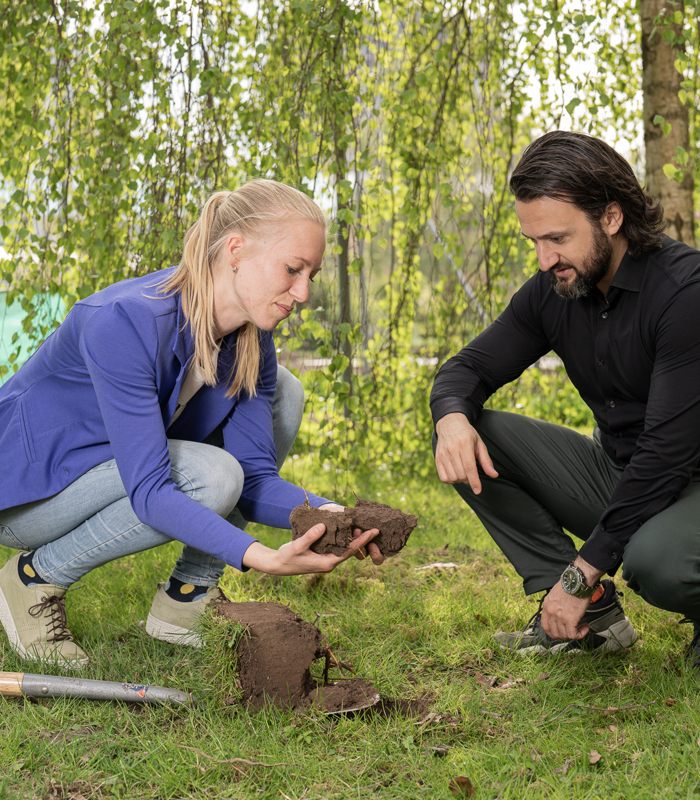
Yvette Lanting MSc
Coordinator research projects
- Y.Lanting@has.nl
- Y.Lanting@has.nl

The Healthy ecosystems research group aims to make a significant contribution to the following mission through practical research: to collaborate with partners and students to realise a biodiverse, climate-adaptive and valued rural and urban environment, which has a healthy and sustainably used ecosystem.
Both rural and urban environments are on the cusp of major changes: nature and water quality are threatened and the climate is rapidly changing. Biodiversity must be restored and urban greening scaled up. A balance must be achieved between nature and its capacity to cope with the demands placed on it by society. The carrying capacity of the water and soil system has also been exceeded in many areas. These urgent issues have an impact on the physical space, the regional and local economies and the social cohesion of the rural and urban environments.
1. We have bridged the gap between fundamental research, practice and education. We are regarded as a valued consultant and/or knowledge partner, specifically relating to the following themes:
2. We have conducted research into a series of future scenarios addressing healthy ecosystems, in which land use is net positive regarding all aspects of sustainability; communities and ecosystems flourish, and they are able to recover and successfully adapt to the changes and issues they encounter.
3. We have helped to shape regional transitions towards sustainable, integrated solutions that ensure a balance between people, nature and the economy. We have achieved this by organising collaborative sessions, as well as promoting knowledge development, knowledge sharing and connecting different perspectives.
4. We have established an international network of knowledge and social partners, through which we learn and conduct research together in the areas of urban greening, biodiversity, climate adaptation and mitigation, a resilient water and soil system and nature inclusive agriculture, in various regional and international contexts.
5. We have integrated the results and new insights into our study programmes and courses.
This research group includes three lines of research, in which targeted and intensive research is conducted.
The following professorships are involved in the Healthy ecosystems research group:
Business Models for Regenerative Agriculture professorship
Climate-robust Landscapes professorship
The power of living soil! professorship is setting up a centre of expertise, where knowledge will be collected and shared with agricultural businesses, business consultants, contractors, and the education sector. The research group will also ensure that students can acquire knowledge about good soil management through practical studies at research farms.
Bachelor programmes
Bachelor programme Horticulture & Business Management
Business courses
